“The more we standardize school, the less our kids have the time and support to develop the ability to learn how to learn, think independently, and create initiatives that make their world better.” – Ted Dintersmith
“Our kids will be adults in a world where automated solutions absorb all routine tasks and jobs, where they will need to invent their own distinctive way to add value to their community, employer, or customer.”
Ted Dintersmith recently won the NEA Friend of Education Award. As a former venture capitalist, a parent and an author, Dintersmith believes that a child “excelling in the non-traditional might well have the ideal preparation for the innovation era.” He also thinks the best thing a parent can do is to raise children confident “of managing their own life.” Most parents probably start out with that goal but then get caught up in the traditional college-ready admissions process, including standardized tests and the perfect transcript. How does one innovate in that context? Ted Dintersmith traveled around all 50 U.S. states in the course of one school year and visited hundreds of schools. To his surprise, he met visionary, hardworking teachers in public school settings taking important steps to teach beyond standardized tests and re-imagine their schools.
Ted joins us in The Global Search for Education to talk about the insights and inspirations he’s gained from American teachers and to share his own perspectives on What School Could Be (which is the title of his new book).
“Just imagine how quickly we’d transform K-12 education if our kids strived to produce remarkable examples of creative work that, in myriad ways, makes the world better.” – Ted Dintersmith
Ted, should we do away with standardized tests or do we just need to change them? Do you believe we should create assessment tools that measure what many consider “more important”?
If I had the opportunity to dictate changes, I’d eliminate standardized tests in the upper grades. In the lower grades, when kids need to develop basic ‘learning how to learn’ skills, these tests can play an important role if used as thoughtful diagnostics. But in upper grades, most AP offerings revolve around standardizing mile-wide-inch-deep content. In doing so, they diminish the role of student curiosity, voice, creativity, and true mastery. So, students sprint superficially through volumes of content, buy AP flash cards to cram for their exams, and then promptly forget most of what they studied! Just review some practice questions and ask, are these questions aligned with an important life skill, or more like giving a student a timed test on their performance of crossword puzzles and Sudoku? The College Board itself offers scant evidence that these tests predict anything of consequence, yet we ascribe outsized importance to them and they do considerable damage to the self-esteem of many.
There are some encouraging advances, like the AP Capstone project, which empowers kids to produce original and creative work. Also, some AP courses are becoming more open-ended, which is encouraging. But in the end, the more we standardize school, the less our kids have the time and support to develop the ability to learn how to learn, think independently, and create initiatives that make their world better.
“Imagine if kids left high school with an economic safety net and multiple open career doors?” – Ted Dintersmith
What do we do about the immeasurable qualities of education that should be prized or sought after?
There’s a huge difference between standardized measures and informed assessment based on evidence. The skills and mindsets that will help a young adult in the innovation era are not suited to standardized testing. Can we really use a bubble test to precisely measure someone’s creative problem solving, critical analysis, collaboration, or leadership?
We have already seen how hard it is to standardize test something pretty basic, like writing skills. For over a decade, the College Board included an essay question in the SAT exam. Although there’s a value in seeing a student’s essay on a topic they can’t anticipate, the College Board wasn’t okay with just transmitting the actual essay and letting admissions assess it. Instead they went further, grading the essays and reporting back a numeric score ranking students precisely against millions of other test takers. Unqualified reviewers were hired on a temporary basis and compensated by the number of essays they grade per hour. These graders admit that they just look for fairly formulaic sentence and paragraph structure, and examples of esoteric vocabulary words.
We live in a world where an individual can use a digital portfolio to convey their competencies, and the portfolio can be assessed by an employer or an admissions officer. And just imagine how quickly we’d transform K-12 education if our kids strived to produce remarkable examples of creative work that, in myriad ways, makes the world better.
At the schools you visited in Indiana and Alaska, what was your take away in terms of the way teachers are embarking on projects unprepared and learning with their students, rather than already being experts in the subjects?
It takes a degree of courage to stand in front of students and say, “Hey, I don’t know how to do this, but we’ll figure this out together.” But that’s what these teachers did. In the world of innovation, a degree of fearlessness and ambiguity is exactly the mindset young adults will need to have. These teachers model this characteristic, trusting their students to learn what’s needed to accomplish student-driven goals. Given how readily kids can learn via online resources, these teachers prioritize challenging and guiding their kids, not lecturing them.
What if we used the K-12 years to help kids develop meaningful proficiencies, learn how to learn, and begin to get a sense of their mission in life. If we cut back on college-ready content (much of which is obsolete, irrelevant, or both), we could empower kids to develop distinctive, hirable proficiencies during their K-12 years. Imagine if kids left high school with an economic safety net and multiple open career doors?
“Far better to let a few teachers run with things, and then share lessons learned. That can be contagious, and no one is being forced to do something they don’t believe in.” – Ted Dintersmith
In Albuquerque, New Mexico, you met teachers upset because they aren’t trusted and have to face severe consequences for straying from a narrow, strict curriculum. Until the attitudes of school leaders change, how do you suggest teachers improve their students’ classroom experience?
We absolutely recommend that schools encourage teachers to explore and try, but not make anything mandatory. Far better to let a few teachers run with things, and then share lessons learned. That can be contagious, and no one is being forced to do something they don’t believe in. Across the country and around the world, we’re seeing how these “small steps leading to big change” can rally school communities to do the most amazing things. An energized, collaborative community is an unstoppable force when it takes a mission it believes in. While it may sound too good to be true, students learn deeply and joyfully when they love being in school.
What steps do you think should be taken to reach the high-level goals as seen in your trip to colleges in British Columbia, where they do not ‘teach to the test?’
We have so much to learn about education from our neighbors to the north. The provinces of Canada bring a sense of perspective and balance to education that is far closer to Finland’s than to ours. Their equivalents of standards are simple one-page summaries of what they expect students to accomplish in a given grade and subject. Instead of standardized tests, there is more trust extended to teachers, and kids have time to pursue their interests. Moreover, similar to Finland, kids in Canada do well on the PISA tests while attending schools free of test prep and standardized tests. Why is it so hard for our country to understand this?
C. M. Rubin and Ted Dintersmith
Join me and globally renowned thought leaders including Sir Michael Barber (UK), Dr. Michael Block (U.S.), Dr. Leon Botstein (U.S.), Professor Clay Christensen (U.S.), Dr. Linda Darling-Hammond (U.S.), Dr. MadhavChavan (India), Charles Fadel (U.S.), Professor Michael Fullan (Canada), Professor Howard Gardner (U.S.), Professor Andy Hargreaves (U.S.), Professor Yvonne Hellman (The Netherlands), Professor Kristin Helstad (Norway), Jean Hendrickson (U.S.), Professor Rose Hipkins (New Zealand), Professor Cornelia Hoogland (Canada), Honourable Jeff Johnson (Canada), Mme. Chantal Kaufmann (Belgium), Dr. EijaKauppinen (Finland), State Secretary TapioKosunen (Finland), Professor Dominique Lafontaine (Belgium), Professor Hugh Lauder (UK), Lord Ken Macdonald (UK), Professor Geoff Masters (Australia), Professor Barry McGaw (Australia), Shiv Nadar (India), Professor R. Natarajan (India), Dr. Pak Tee Ng (Singapore), Dr. Denise Pope (US), Sridhar Rajagopalan (India), Dr. Diane Ravitch (U.S.), Richard Wilson Riley (U.S.), Sir Ken Robinson (UK), Professor Pasi Sahlberg (Finland), Professor Manabu Sato (Japan), Andreas Schleicher (PISA, OECD), Dr. Anthony Seldon (UK), Dr. David Shaffer (U.S.), Dr. Kirsten Sivesind (Norway), Chancellor Stephen Spahn (U.S.), Yves Theze (LyceeFrancais U.S.), Professor Charles Ungerleider (Canada), Professor Tony Wagner (U.S.), Sir David Watson (UK), Professor Dylan Wiliam (UK), Dr. Mark Wormald (UK), Professor Theo Wubbels (The Netherlands), Professor Michael Young (UK), and Professor Minxuan Zhang (China) as they explore the big picture education questions that all nations face today.
The Global Search for Education Community Page
C. M. Rubin is the author of two widely read online series for which she received a 2011 Upton Sinclair award, “The Global Search for Education” and “How Will We Read?” She is also the author of three bestselling books, including The Real Alice in Wonderland, is the publisher of CMRubinWorld and is a Disruptor Foundation Fellow.
Follow C. M. Rubin on Twitter: www.twitter.com/@cmrubinworld

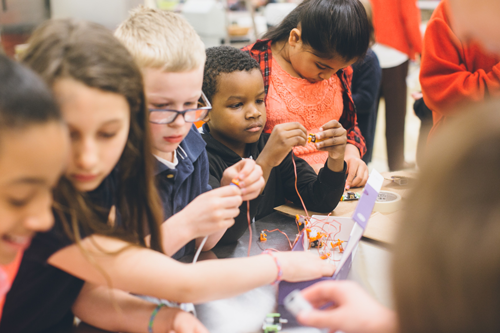
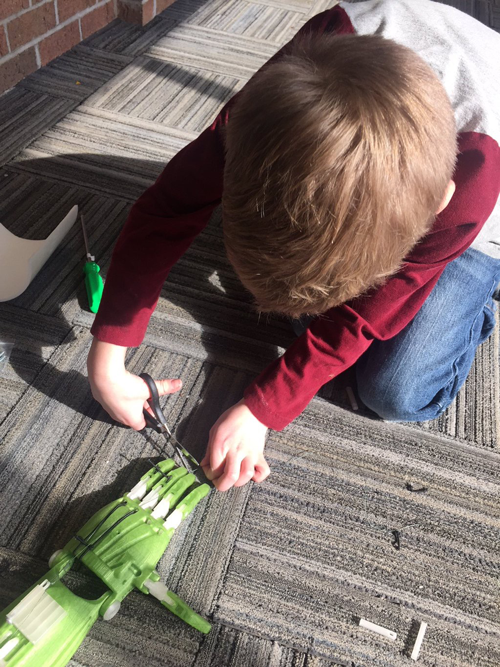
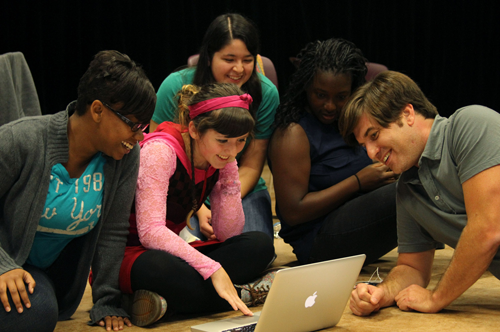

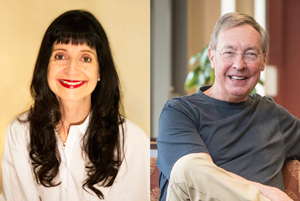
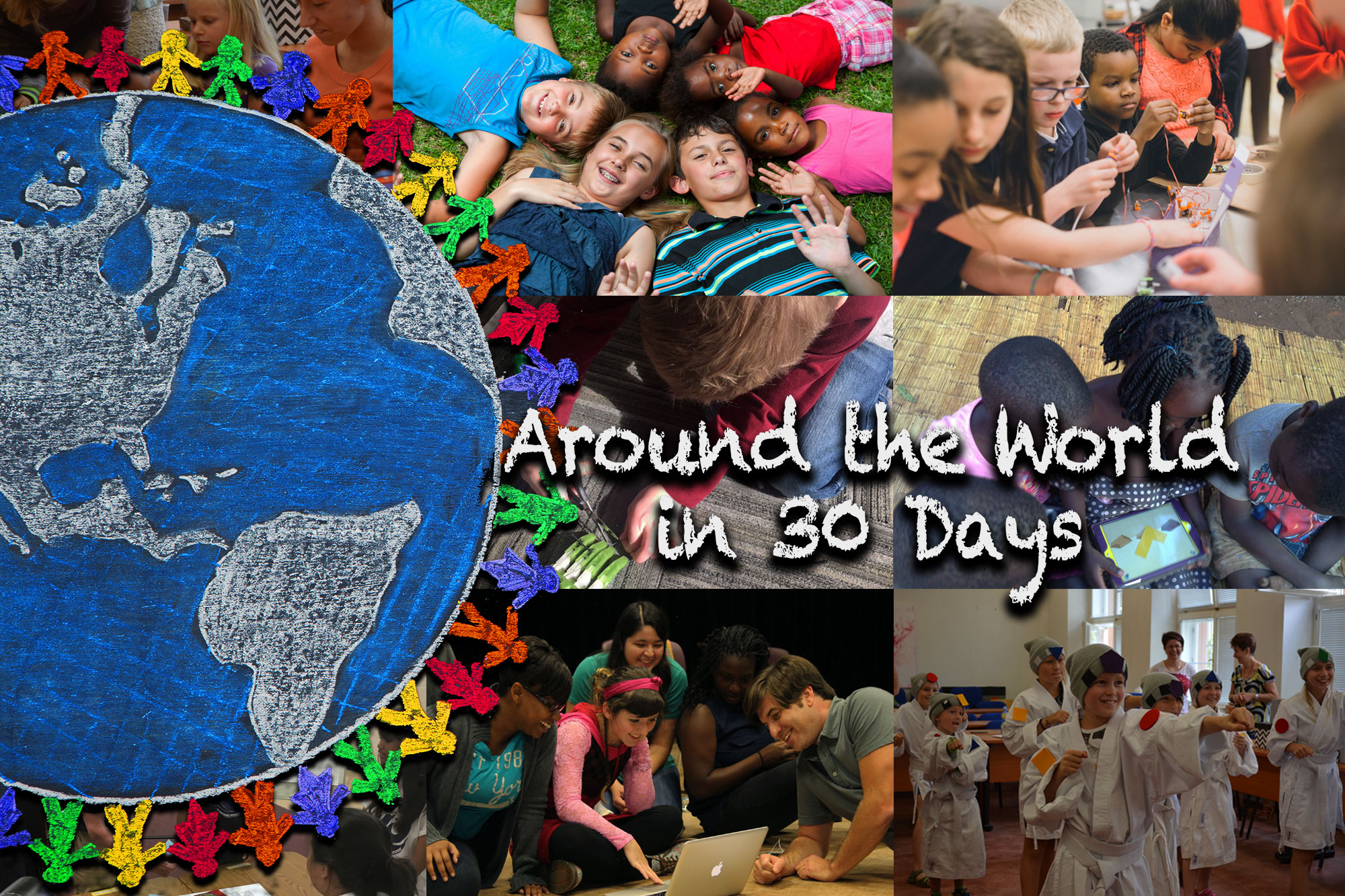



Recent Comments